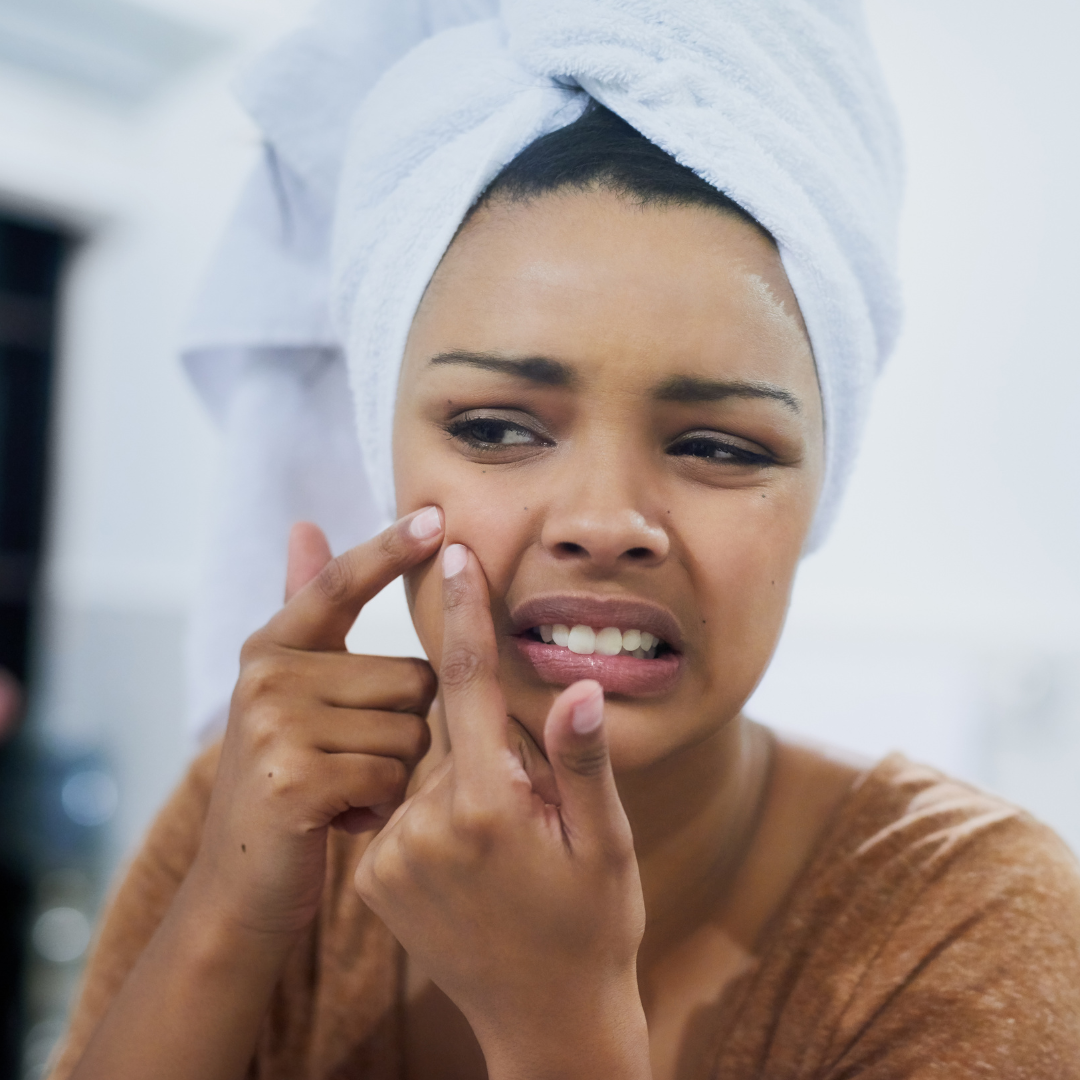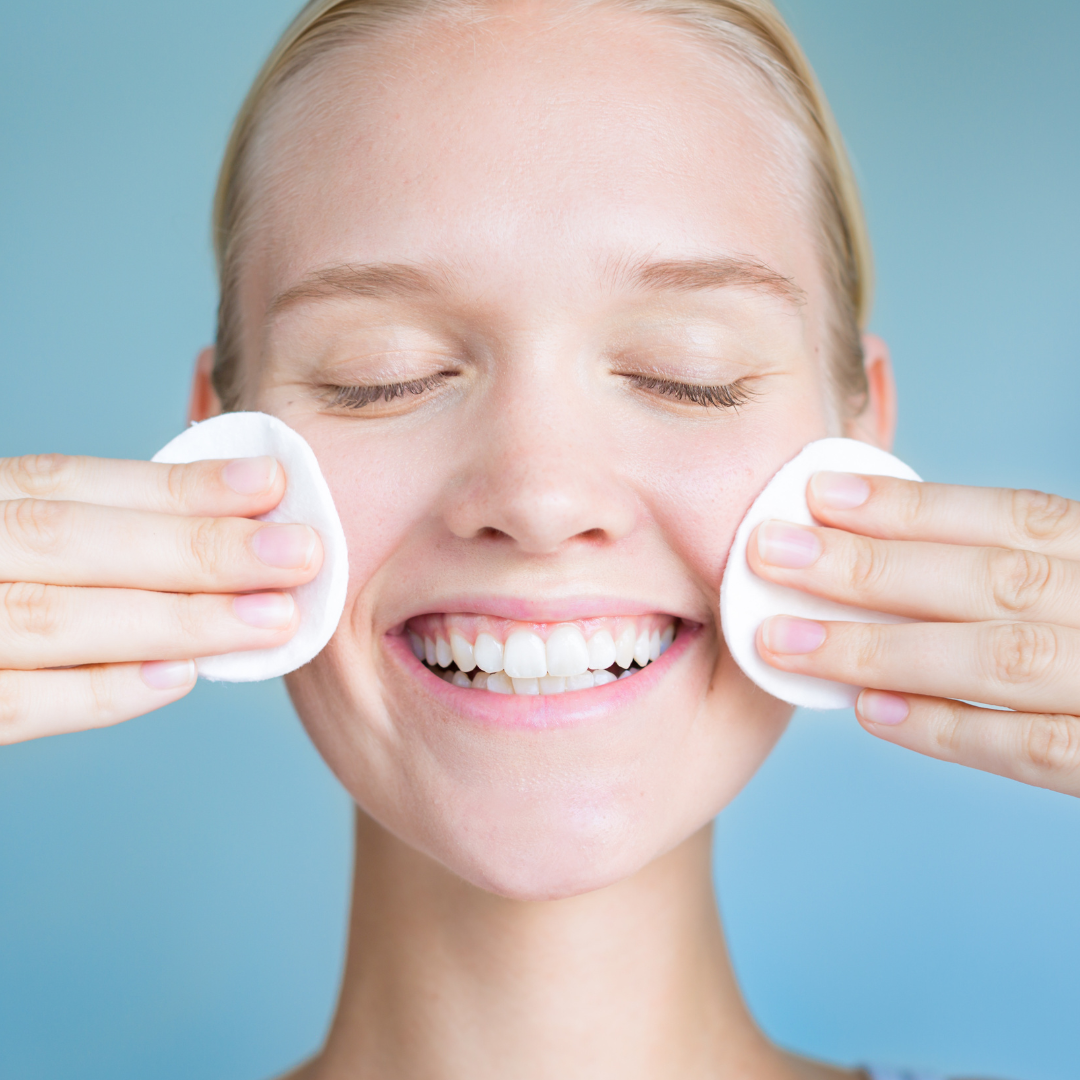Article: ACNE HACKS AND TIPS

ACNE HACKS AND TIPS

Contrary to popular belief, drying out pimples is not a long-term solution for treating acne. When you dry out your skin, it reacts by producing more oil to compensate for the dryness. This excess oil can clog pores, leading to more breakouts. Similarly, over-washing your face strips the skin of its natural oils and disrupts its microbiome, which includes both good and bad bacteria. Cleansing too often doesn’t provide any real benefit and can actually exacerbate acne.
I’ve personally dealt with years of acne, going on and off medications and trying various skin care methods, routines and different products. Like many, I thought over-cleansing and drying out blemishes would help, but I learned otherwise after delving deep into dermatology research on acne. Eventually, I saw a dermatologist and requested Tretinoin, knowing it would be a more effective solution for me.
TRETINOIN: A FINAL SOLUTION, NOT A QUICK FIX
Tretinoin is a prescription topical treatment that works, but it’s not for everyone. I use it every other day to minimise side effects like redness, sensitivity, and flakiness, which can last for the first 6 months. It’s also expensive and not easy to obtain everywhere. In the UK, it often comes mixed with other medications, while in the USA and Australia, it requires a prescription.
If you’re not ready for prescription treatments like Tretinoin, there are plenty of other effective options worth trying first.
TOPICAL INGREDIENTS TO CONSIDER
• Niacinamide (Vitamin B3): This is one of my favourite ingredients because it helps balance oil production and repair the skin barrier, reducing acne over time.
• Vitamin C: Known for its antioxidant properties, Vitamin C helps reduce inflammation, speed up healing, and improve skin texture. It also brightens the skin and fades post-acne dark spots.
• Salicylic Acid: A beta hydroxy acid (BHA), salicylic acid exfoliates inside the pores, preventing clogs, reducing inflammation, and controlling oil production.
• Retinol & Bakuchiol: Both ingredients promote cell turnover, smoothing skin texture. Bakuchiol, a plant-based alternative to retinol, offers similar benefits without the side effects, making it gentler for sensitive skin. For best results, look for products containing Sytenol® A Bakuchiol at 1%, which has been clinically studied for its effectiveness.

ACNE CLEANSING
Use a gentle cleanser—oil-based ones with salicylic acid are great for removing makeup and SPF without stripping the skin. I use mine at night and rinse with plain water in the morning, followed by a face tonic. It’s important to avoid harsh cleansers that can damage the skin’s microbiome.
NATURAL REMEDIES AND OTHER THERAPIES FOR ACNE
• Red Light Therapy (RLT): This uses specific wavelengths of light to stimulate collagen, heal acne scars, reduce inflammation, and improve skin tone. It’s especially helpful for acne and conditions like rosacea or psoriasis.
• Blue Light Therapy: Blue light targets acne-causing bacteria, reduces inflammation, and can be used alongside other treatments.
• Honey (especially Manuka honey): With its antibacterial and anti-inflammatory properties, honey can help reduce acne-causing bacteria and soothe inflamed skin. It also promotes healing and can prevent post-acne scars. Use it as a spot treatment or a mask mixed with yogurt or oatmeal.
• Aloe Vera: Aloe soothes and hydrates without clogging pores, making it perfect for acne prone skin. It also helps fade scars and reduce redness. Use fresh aloe vera gel directly on breakouts, or mix it into a soothing mask with honey and yogurt for added benefits.
• Yogurt Masks for Acne: Plain Greek yogurt is another natural remedy you can add to your skincare routine. It’s effective for acne prone skin because it contains:
Probiotics: Yogurt contains beneficial live cultures that support your skin’s microbiome, helping to balance bacteria on the skin’s surface and reduce inflammation.
Lactic Acid: Yogurt also contains lactic acid, which gently exfoliates dead skin cells and helps promote cell turnover. This can improve skin texture and prevent clogged pores.
Moisturising & Soothing: The natural fats and proteins in yogurt help to hydrate the skin, while its cooling properties soothe irritation.
How to Use It as a Mask: Apply plain yogurt directly to clean skin and leave it on for 20–30 minutes before rinsing off. You can also mix it with honey or aloe vera for extra healing benefits.
AVOID PICKING PIMPLES
It’s tempting to pick at pimples, but it does more harm than good. Here’s why you should resist:
1. Increased Inflammation: Picking irritates the skin and makes pimples more noticeable.
2. Risk of Infection: You risk introducing bacteria from your hands into the pimple, leading to infections.
3. Scarring: Picking can cause scabs and permanent scars, especially with deeper acne.
4. Prolonged Healing: The healing process is slowed down when you interfere.
5. Spread of Acne: Popping pimples can spread bacteria to nearby pores, leading to new breakouts.
6. Post-Inflammatory Hyperpigmentation: Picking can cause dark spots that take months to fade.

TIPS FOR MANAGING ACNE:
Hands Off:
Try to avoid touching your face, especially if your hands aren’t clean.
• Use Treatments:
Apply products with salicylic acid, niacinamide (B3), vitamin C, retinol or bakuchiol and other soothing, non-comedogenic ingredients. At home consider making your own mask using aloe vera, honey, or plain yogurt.
• Sun at Low UV:
Early morning sun exposure, when UV rays are low (2 and under), can be beneficial for your skin.
• Blue Light & Red Light Therapy:
These therapies work together to fight acne by reducing bacteria and inflammation, while also promoting healing and improving skin tone.
• Consult a Dermatologist:
If you struggle with persistent acne, consider seeing a dermatologist for professional advice. Keep in mind that some oral prescription treatments may have side effects, like teeth discolouration, so research them thoroughly before starting.
By following these tips and avoiding bad habits like picking, you’ll help your skin heal faster and reduce the risk of long-term damage.
WE RECOMMEND :

